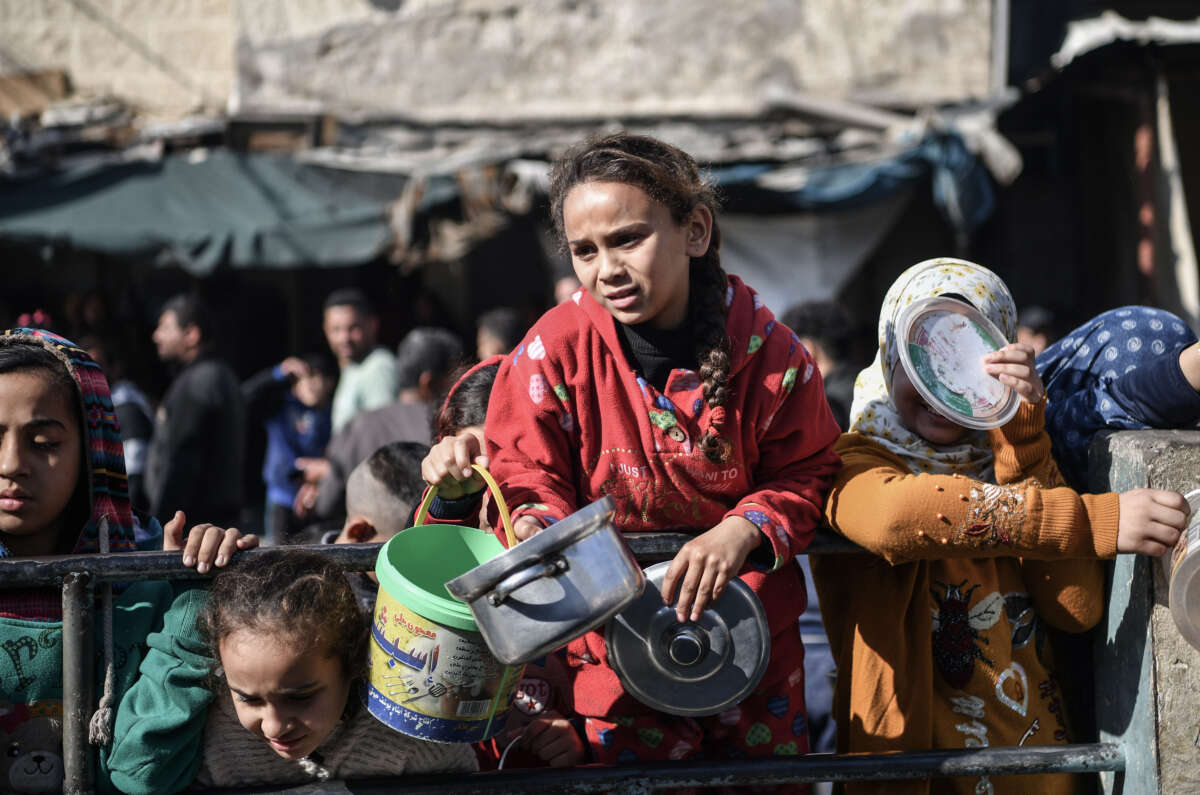The entire population of Gaza is facing an acute hunger crisis, according to a new report by the UN-backed Integrated Food Security Phase Classification (IPC), making the food shortage in Gaza the worst the group has ever seen.
The IPC report released Thursday finds that all 2.2 million people in Gaza are in what the IPC classifies as Phase 3 food insecurity, or “crisis” level, in which households are facing acute food shortage issues, or higher. This is the highest number of people at this level of food insecurity or worse that the IPC has ever observed, the group said.
Among people in IPC Phase 3 or above, 50 percent are in Phase 4, or “emergency” food insecurity, while a quarter of the population, or about 570,000 people, are in a Phase 5 food “famine.” Phase 5 is the highest level of food insecurity, and is “characterized by households experiencing an extreme lack of food, starvation, and exhaustion of coping capacities,” the report says. This phase of hunger began on December 8, and is expected to continue until early February, the IPC found.
“It doesn’t get any worse,’’ Arif Husain, UN World Food Program’s top economist, told the Associated Press. “I have never seen something at the scale that is happening in Gaza. And at this speed. How quickly it has happened, in just a matter of two months.”
The report says the reason for the mass hunger is Israel’s blockade of food and other basic supplies like water from entering the region, preventing not just the distribution of food but shutting down farms, bakeries, and other food sources. This blockade, maintained by Israel for over two months, has resulted in virtually every family unit in Gaza skipping at least one meal a day, with some going entire days without eating and many adults going hungry in order to allow children to have food.
The report was prepared by the IPC, which is funded by a number of global organizations like the UN and the EU, as well as aid groups like Save the Children and Oxfam. The report authors call for an immediate “cessation of hostilities” in order to restore humanitarian aid pathways and services like water, electricity, health care, telecommunications, and other critical needs.
“Today’s shocking figures describing the high levels of starvation in Gaza are a direct, damning, and predictable consequence of Israel’s policy choices — and President Biden’s unconditional support and diplomatic approach,” Abby Maxman, President and chief executive of Oxfam America, said in a statement.
“The Biden administration must use all of its influence to achieve an immediate ceasefire to stop the bloodshed, allow for the safe return of hostages to Israel, and allow aid and commercial goods in, so we can save lives now,” Maxman continued. “The U.S. cannot continue to stand by and allow Palestinians to be starved to death.”
The report corroborates findings from Human Rights Watch earlier this week that Israel is using starvation as a “weapon of war.” Using starvation as a method of war is a war crime.
The report finds that Israel is blocking the import of the vast majority of food and is destroying bakeries and all of Gaza’s wheat mills. The blockade of water has made farming “nearly impossible,” with many livestock starving to death and crops going unwatered — and, further, Israel has deliberately razed agricultural land and facilities, including orchards, greenhouses and farmland, the report highlighted.
